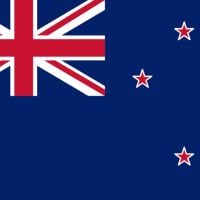Deadline: 08-Apr-24
uBoraBora has announced a call for proposals implementation research in foundational literacy and numeracy (FLN) Programs in Sub-Saharan Africa.
Governments and their partners have made significant progress in improving foundational literacy and numeracy (FLN) outcomes. Despite this progress, the challenge of scaling evidence-based interventions effectively remains.
uBoraBora exists to address this issue and contribute to a movement for more implementation research in global education in Sub-Saharan Africa (SSA). They will be working directly with implementers to:
- Fund and support more evidence generation and use to scale FLN programs in SSA
- Understand more than “what works” and explore where, for whom and how as a new norm in global education
- Contribute to changing practice for evidence-based continuous improvement in global education
Through their work, they will share stories of success and package up the approaches used by uBoraBora grantees and others to continuously improve their programs. The idea is that by telling these stories and explaining how they did it, they aim to inspire more people to do the same – and ultimately improve programs and learning outcomes of children in SSA.
uBoraBora will fund proposals to generate and use evidence within existing FLN programs in SSA that are:
- Integrating into government systems and have existing government partnerships
- Implementing an evidence-based model, even though you may not have evidence in your context or for your specific implementation yet.
- Operating at scale or have clear ambitions and plans for scaling current operations
Programs that have little to no government engagement, models that lack a solid evidence base, and are not on a pathway to scale will not be eligible.
Project scope: persistent challenges in implementation
- Implementation challenges come in many shapes and sizes and exist at all levels of the system. They will focus on three persistent challenges to scaling FLN programs in SSA: greater efficiencies, uptake and adaptation.
- Proposals should articulate a challenge which can be addressed by implementation research.
- Greater efficiencies
- Investigate and test ways for your FLN program to be delivered more efficiently to unlock scale and greater government adoption. For example:
- “The curriculum and lesson plans they have developed with the government are improving outcomes, but teachers are struggling to keep pace and deliver the curriculum as planned. How can they streamline the curriculum to fit it into the available instructional time?”
- “The program includes classroom-based reading assessments for all students, but this is taking a lot of teachers’ time. How can they make this more efficient while maintaining high-quality and relevant data?”
- Investigate and test ways for your FLN program to be delivered more efficiently to unlock scale and greater government adoption. For example:
- Effectiveness and uptake
- Test and apply different approaches to improve uptake and deepen integration of effective models. For example:
- “The teacher training is starting to improve instruction, but they have feedback that the training and uptake can be improved. What variations in district buy-in, dosage and follow up support might enhance teacher development and likelihood of adopting target pedagogical practices?”
- “The teaching and learning materials are high-quality and well-aligned with the curriculum, but teachers and students are not finding them easy to integrate into lessons. What is preventing use of the materials and what do those barriers suggest as next steps for better system integration?”
- Test and apply different approaches to improve uptake and deepen integration of effective models. For example:
- Adaptation
- Explore adaptations to your core program so that it’s tailored for different contextual factors. For example:
- “They have had success with the curriculum and materials in several regions, but now they are moving to regions where students have lower oral language skills in the language of instruction. How do they adapt the program to better support these learners?”
- “The context assessment tells them that schools and teachers have different challenges in a region they are expanding to. What changes do they need to make to the design and delivery approach to address those challenges?”
- Explore adaptations to your core program so that it’s tailored for different contextual factors. For example:
- Greater efficiencies
Benefits
- Up to $100,000 in grant awards, and ‘right fit’ technical assistance
- Selected grantees will receive up to $100,000 grant funding to spend over 6 – 18 months. They are open to receiving proposals that utilize specific, shorter implementation windows as part of this.
- In addition to the financial support, recipients will also benefit from ‘right fit’ technical assistance designed to enhance efficiency, adaptability, and the application of evidence.
- Through conversations they will work with you to determine the type and level of assistance you need. The uBoraBora team can:
- Help to investigate issues and working together to generate and test options to address them
- Offer light-touch support to your own internal team
- Support with government uptake
- Act as a thought partner for research design
- Second additional resource as needed
- They’ll work closely with you to outline and agree on this support as part of the grant agreement.
- More than a fund: uBoraBora grantees are part of a movement in creating a new norm for implementation research in global education
- Change happens through ‘people, not paper’ and the team behind uBoraBora knows that often, grantees learn most from one another. They will focus on this human, interpersonal dimension by making additional extras available to all grantees:
- Team coaching and support with interpersonal dynamics and how to create a culture of learning
- Access to an Evidence Studio, headed up by experienced storytellers, to develop and share your stories of success
- Vibrant get-togethers with other grantees to connect & deepen knowledge
- Opportunities to share thought leadership with peers & the sector through what they’re calling The Bora Network
- Change happens through ‘people, not paper’ and the team behind uBoraBora knows that often, grantees learn most from one another. They will focus on this human, interpersonal dimension by making additional extras available to all grantees:
Eligibility Criteria
- The proposed project focuses on improving an ongoing FLN program
- The program is being delivered in a country in SSA
- The proposed project will run for 6-18 months
- The lead entity is a legally registered entity
For more information, visit uBoraBora.







































